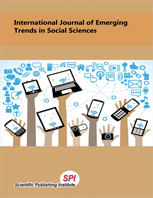OVIAR: Towards a Model for Cyberstalking Intervention and Reduction
DOI:
https://doi.org/10.20448/2001.42.58.66Keywords:
OVIAR, Model, Lifecycle, Cyberstalking, Online victimisation, Online harassment.Abstract
Despite more than two decades of research, relatively little is known about cyber stalking and similar phenomena. In particular, the existing literature tells us little about how cases unfold, how they can be managed or how we can work towards reduction. This paper presents a model depicting the dynamics and lifecycle of a cyber stalking episode. While primarily concerned with cyberstalking, the model may also be relevant to other forms of victimisation and is accordingly titled the Online Victimisation Intervention & Reduction (OVIAR) Model. Cyberstalking is shown as an iterative cycle made up of discrete stages. It is argued that each stage provides opportunities to deter the cyberstalker allowing the model to offer guidance about which interventions may be effective at a given point in the lifecycle. In proposing the model, the work draws upon a number of areas including information systems, criminology and psychology. A key part of the discussion involves the decision behaviour of the cyberstalker. It is argued that cyberstalking incidents involve a number of decision points that may serve to curtail or escalate the cyberstalker’s activities. The decisions made by the cyberstalker will be influenced by several factors, including the feedback he receives from his actions. Understanding how cyberstalkers make decisions can provide opportunities to prevent discourage further acts of harassment against victims. It may also benefit attempts to reduce or prevent victimisation in the first place. In discussing these areas, we draw upon areas such as rational choice theory, victim coping responses and the notions of intrinsic and extrinsic feedback.The model is intended to be understandable by a wide range of stakeholders, including law enforcement, technology professionals and victims themselves. For those involved in dealing with cyberstalking, it provides a tool that can be used to inform the management of cases. For academics, it is intended to provide a framework for further discussion and research.


